Apr 2, 2024 12:59 PM
Saxophonist, Sonic Explorer Casey Benjamin Dies at 45
Casey Benjamin, the alto saxophonist, vocalist, keyboardist and producer who stamped his distinctive sounds on the…
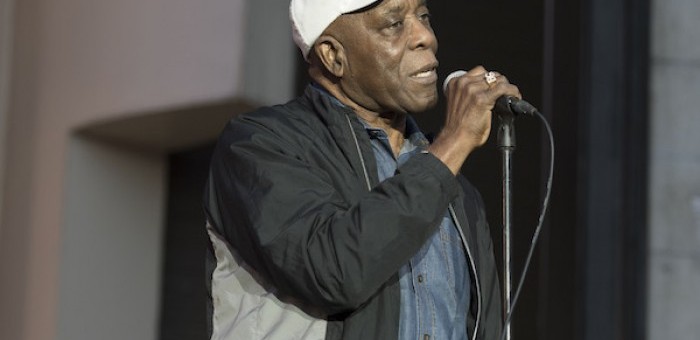
Buddy Guy (pictured) was among the many Chicago-based blues musicians who appeared at the city’s annual Blues Fest to pay tribute to guitarist Otis Rush.
(Photo: ©Jack Vartoogian/FrontRowPhotos)The annual Chicago Blues Festival always does an admirable job of paying homage to the masters, but rarely has a tribute program proved as heartfelt and flawlessly executed as this year’s closing-night event in honor of Chicago treasure Otis Rush.
When first announced, the tribute caused many to wonder whether the 81-year-old would be able to attend. The southpaw guitar virtuoso with a plaintive tenor voice custom-made for singing the blues has largely been out of sight since suffering a stroke in 2004, yet he’s never out mind for the generations of artists who list him among their primary influences.
And behold, there was Rush in his wheelchair, surrounded by family and friends as he waved gleefully from the Petrillo Music Shell stage to the cheering throng in Grant Park. He raised both hands in triumph as Chicago Mayor Rahm Emanuel read a proclamation designating June 12 as Otis Rush Day in the self-styled blues capital.
The crowd roared as Rush grabbed a microphone and urged, “Let me hear you say ‘Yeah.’ “ A video of Rush belting out his 1956 breakthrough hit “I Can’t Quit You Baby” was interspersed with recorded testaments from Carlos Santana, Steve Miller and Buddy Guy.
Veteran Chicago music producer Dick Shurman, who befriended Rush more than four decades ago and organized the festival tribute, did yeoman work as producer, emcee and talent wrangler.
He brought down the house one song into the set when he introduced Guy, while apologizing that the Chicago blues ambassador would play only a limited role because of a contractual conflict with an upcoming area gig. Guy took the mic and said, “I owe Otis a big thanks.”
Almost all of the 30 musicians who graced the stage expressed similar sentiments, both verbally and through their inspired performances. Nick Moss Band guitarist-vocalist Mike Ledbetter shined brightly with his reading of Rush’s “Right Place, Wrong Time.” Chicago bluesman Lurrie Bell was in fine form fronting the ballad “My Love Will Never Die.” Shurman said Chicago soul-blues great Otis Clay called dibs on this song upon learning of the planned tribute, but organizers turned to Bell after Clay died in January.
Jimmy Johnson, whose vocals and guitar craftsmanship were heavily influenced by Rush, stepped up with “So Many Roads” and “Three Times A Fool.”
Blues Fest stalwart Willie Henderson turned in his usual high-level work, both on baritone saxophone and as bandleader for an ad-hoc Chicago horn section that rotated in and out during the set. Tenor saxophonist Abb Locke, who worked with Rush from 1958 through the ’70s, joined in, while his fellow Rush alum Eddie Shaw addressed the audience but opted not to play.
Perhaps the most heartfelt expression came from the guitar of Ronnie Earl. His playing was a study in economy yet electrifying enough to make the hairs on your neck stand on end on the seminal Rush tune “Double Trouble.” The slow-tempo, minor-key 1958 Rush standard was recorded by Eric Clapton and Stevie Ray Vaughan, who named his band for it. Diane Blue, lead singer for Earl’s band, the Broadcasters, was captivating and emotive.
The Broadcasters also played a mainstage set earlier in the evening, as did Eddy “The Chief” Clearwater. The latter was in fine form on “All Your Love (I Miss Loving),” his fretwork razor-sharp on the shimmering solo.
As so often happens on closing night at the fest, the end came too soon. Not even the mayoral decree could forestall the final curtain, with an obviously disappointed Shurman admitting before the grand finale, “It won’t be the free-for-all they’d envisioned due to time constraints.” It came down to a single encore, with Ledbetter, who appeared on Earl’s 2015 disc Father’s Day (Stony Plain), and Blue sharing lead vocals on “I Can’t Quit You Baby.”
The crisp, clear evening began with Earl and the Broadcasters dipping into their blues, jazz and gospel catalog. The guitarist was the featured attraction, but he generously shared the spotlight with Blue and keyboardist Dave Limina.
The latter set the pace for “A Change Is Gonna Come,” with Blue’s vocal a little too reserved for the Sam Cooke anthem. But Blue held nothing back on “I’d Rather Go Blind,” summoning her inner Etta James.
Clearwater, like Rush, is 81 and plays a lefty guitar. The Chief was part of the West Side blues sound pioneered by Rush, along with Magic Sam, Luther Allison, Jimmy Dawkins and scores of other guitar slingers. He took the Grant Park stage for his solo set in full Native American headdress, displaying his showmanship on the shtick-heavy, Chuck Berry-inspired “Too Old to Get Married,” “I Wouldn’t Lay My Guitar Down” and other rock ’n’ roll novelty tunes.
Clearwater’s set turned serious but soothing when he pleaded for humankind to tear down the “walls of hate,” a welcome antidote on a day that began with the worst mass shooting in U.S. history.
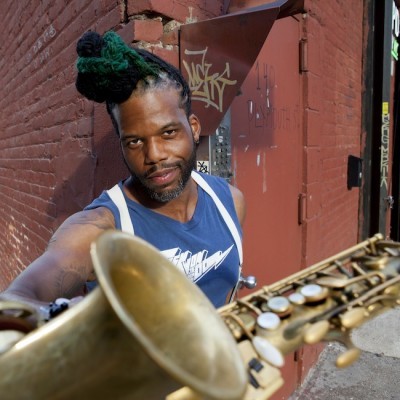
Benjamin possessed a fluid, round sound on the alto saxophone, and he was often most recognizable by the layers of electronic effects that he put onto the instrument.
Apr 2, 2024 12:59 PM
Casey Benjamin, the alto saxophonist, vocalist, keyboardist and producer who stamped his distinctive sounds on the…
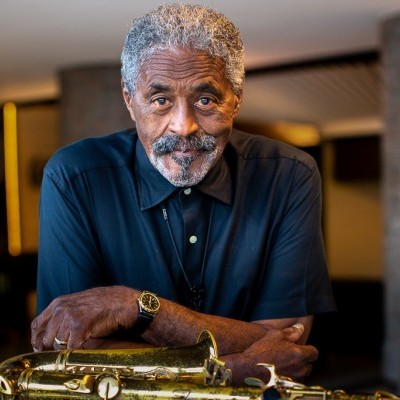
“He’s constructing intelligent musical sentences that connect seamlessly, which is the most important part of linear playing,” Charles McPherson said of alto saxophonist Sonny Red.
Feb 27, 2024 1:40 PM
“I might not have felt this way 30 to 40 years ago, but I’ve reached a point where I can hear value in what people…
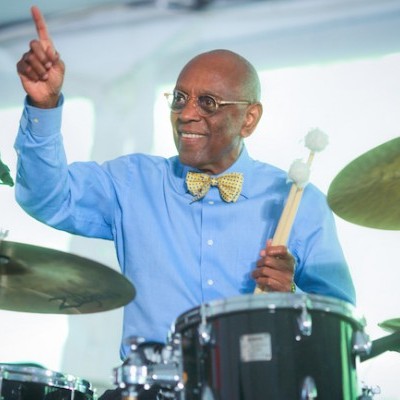
Albert “Tootie” Heath (1935–2024) followed in the tradition of drummer Kenny Clarke, his idol.
Apr 5, 2024 10:28 AM
Albert “Tootie” Heath, a drummer of impeccable taste and time who was the youngest of three jazz-legend brothers…
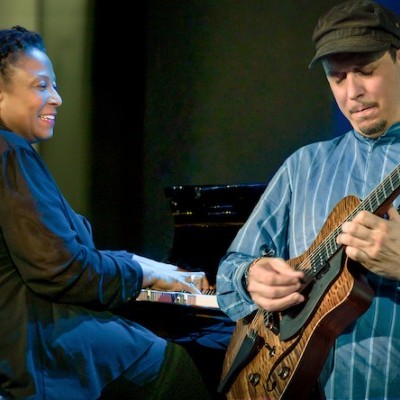
“Both of us are quite grounded in the craft, the tradition and the harmonic sense,” Rosenwinkel said of his experience playing with Allen. “Yet I felt we shared something mystical as well.”
Mar 12, 2024 11:42 AM
“There are a few musicians you hear where, as somebody once said, the molecules in the room change. Geri was one of…
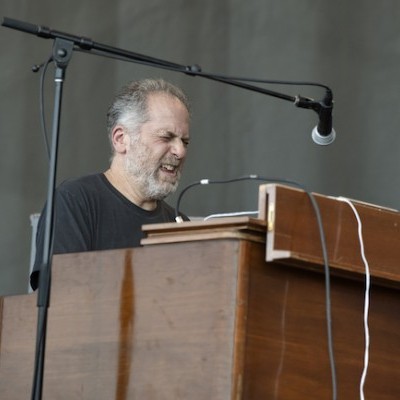
Larry Goldings’ versatility keeps him in high demand as a leader, collaborator and sideman.
Feb 21, 2024 10:45 AM
Are you having any fun? Larry Goldings certainly is. Consider just two recent examples:
Scene 1: “If anyone had…